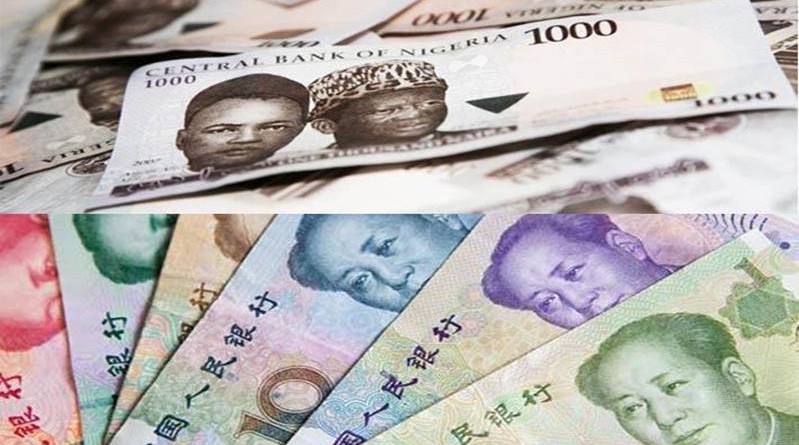Nigeria and China have renewed a 15 billion yuan ($2 billion) trade deal, a move expected to boost cooperation between the two countries and promote trade and investment.
The People’s Bank of China confirmed on Friday that the arrangement will be valid for three years and can be extended by agreement.
The agreement allows the yuan to be traded directly with the Nigerian naira, eliminating reliance on the US dollar and reducing costs in trade between the two countries.
The currency exchange was signed in June 2018 to resolve business issues for businesses in both countries and facilitate trading in the currencies.
- Advertisement -
The agreement converts 15 billion Chinese yuan (CNY) into 720 billion Nigerian naira (NGN), equivalent to $2.5 billion at an exchange rate of 305 NGN to $1.
The exchange is intended to facilitate business transactions by eliminating the need for the US dollar as an intermediary currency.
It provides naira liquidity to Chinese companies operating in Nigeria and yuan liquidity to Nigerian companies trading in China. The aim is to promote seamless trade, encourage bilateral investment and improve business performance.
The plan allows the two central banks to pump money into their coffers over a two-week cycle.
In this way, they facilitate the buying, selling and buying back of yuan and naira to promote trade and investment. The agreement demonstrates a strong economic relationship between China and Nigeria ahead of a direct currency exchange to reduce reliance on the US dollar and promote cross-border trade.
- Advertisement -
Nigeria remains one of China’s largest trading partners in Africa, with bilateral trade value exceeding US$22.6 billion by 2023.
Nigeria’s main exports include oil and agricultural products, while Chinese products, from electricity to household appliances, dominate the Nigerian economy.
The update comes as Nigeria seeks to stabilize its currency, the naira, which is facing a downward spiral following a spike in the exchange rate in early 2024.
By increasing the use of the yuan, the exchange rate is expected to reduce pressure on Nigeria’s reserves and strengthen its trade position with China.










